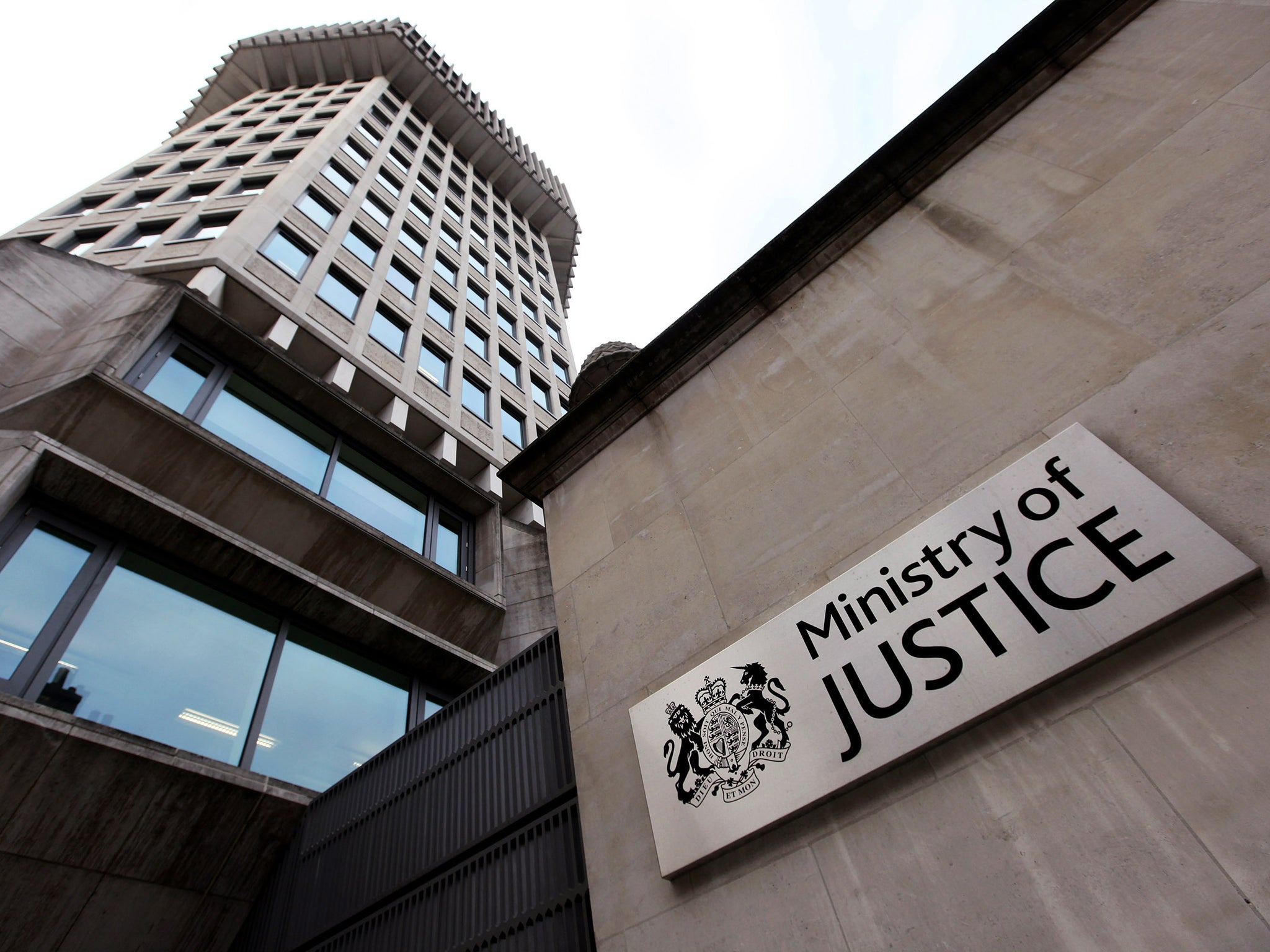Cuts to legal aid force parents to defend themselves in family court cases
Exclusive: More than half went into court without a lawyer fighting their side

The number of parents forced to represent themselves before the family courts jumped by 20,000 last year following the withdrawal of legal aid for almost all family cases, official figures obtained by The Independent show.
The increase means that for the first time more than half of parents - 58 per cent - went into court without a lawyer fighting their case in 2013/14. Many were mothers from poor backgrounds.
In the previous year, before legal aid changes came in, just 43 per cent of parents before the family courts were not represented by lawyers.
The Government argued that cutting legal aid to family law would mean parents solved their disputes through mediation rather than battling in court. But in fact, the new figures show there was an annual increase in the number of parents resorting to the courts for child contact and residency battles after legal aid was withdrawn for most private family law issues in April 2013.
Family courts in England and Wales dealt with 19,140 more unrepresented parents in 2013/14 compared to the previous year, according to data released by the Ministry of Justice following a freedom of information request by the divorce service Lawyer Supported Mediation.
The situation has led to courtroom delays and serious concerns about access to justice. Shadow Justice Minister, Sadiq Khan said: “The government were warned three years ago that their cuts to legal aid would lead to chaos in the courts. As is often the case with this government its women and the vulnerable bearing the brunt of the changes.
“Not only does it cost the system more money when people turn up in court without a lawyer as the whole process is much slower, but the experience for those concerned can be traumatic and harrowing. Given these are people looking to secure contact with their children, this makes this data all the more troubling.
“This Government’s actions are seeing access to justice becoming the preserve of the rich and all their talk of increased use of mediation being the saviour have turned to dust”
More than half of the rise in the number of unrepresented parents was made up of women, since low-income mothers bore the brunt of the cuts to legal aid.
The increase means that for the first time mothers made up more than half - 53 per cent - of parents without lawyers attending court to contest child arrangements. The situation is so dire that more mothers appeared at court in 2013/14 without a lawyer than with one.
Marc Lopatin, founder of Lawyer Supported Mediation, said: “Legal aid remains available for mediation and it’s extremely effective at helping parents reach agreement. The biggest challenge is getting more parents to explore it. This won’t happen unless the Ministry of Justice uses legal aid to bring lawyers and mediators together. At present, it’s driving them apart.”
Jerry Karlin, chair of the shared parenting charity Families Need Fathers said: “It is staggering that so many parents are effectively being left to fend for themselves. We urgently need to develop affordable and compelling services that strive to keep parents from the courtroom.”
A MoJ spokesperson said: “We've increased mediation funding as it's often more successful, less expensive and less stressful than going to court. In some cases - such as where domestic violence is involved - court clearly is the only answer and we've made sure legal aid remains available here.
“There have always been a significant number of people representing themselves in court - as happened in about half of all private family law cases the year before we introduced these changes - and we have improved the information available to help them. The court can instruct a person to pay for the other party where they are able to do so.”
Join our commenting forum
Join thought-provoking conversations, follow other Independent readers and see their replies
Comments